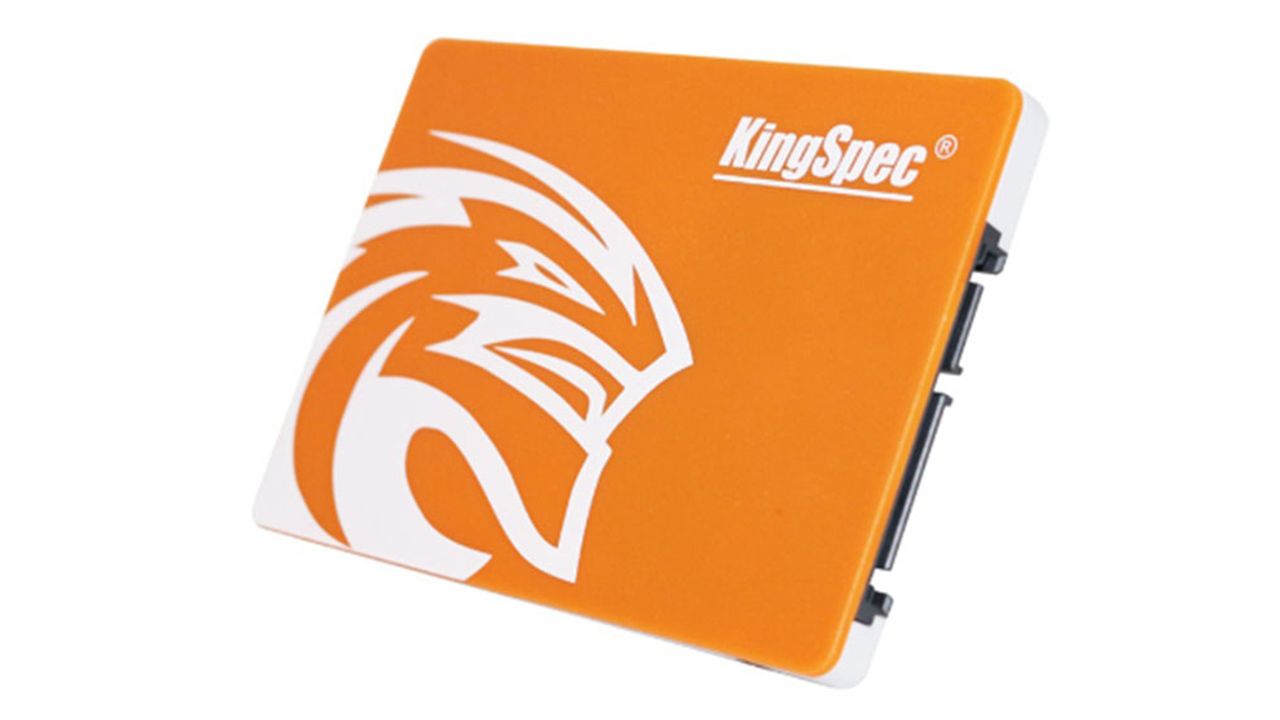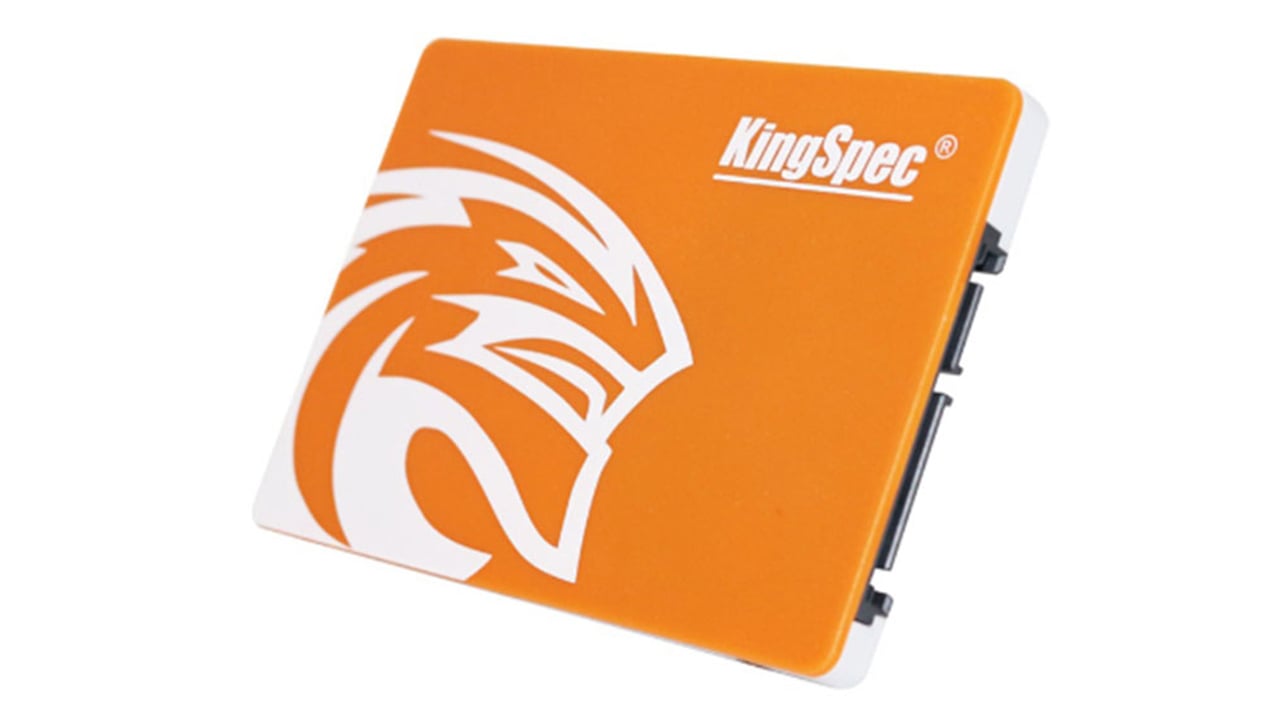

Does the old addage of something being too good to be true hold up, or are bargain SSDs actually worth getting hold of?
A loyal Dutch RedShark reader named Willem dropped us a line to tell us about some amazing deals he has seen on SSDs from Chinese manufacturer KingSpec. He was stunned to see you can buy their 1TB SSD for Euros 143/GBP £127 or a 2TB model for less than twice that price at £228.
Those prices include free shipping to Europe through the KingSpec Global Store on AliExpress.com.
The model code is given as P3-XXX, which looks odd as you might expect to see P3-1TB or P3-2TB. When you head over to KingSpec’s website the specification is watermarked with ‘KingSpec Confidential’ which is something we have never seen before.
- Model Number: P3-XXX
- Type: Internal
- Size: 2.5-inch
- Interface Type: SATA III
- Application: Server, Desktop, Laptop
- Controller: MAS0902/MK8115/INIC6081
- NAND Flash Type: 3D TLC
- Sequential Read Up to 570MB/sec
- Sequential Write Up to 500MB/sec
- Application: POS machine, Shipping, Queuing machine, etc.
- Bad Block Management: Auto Bad Block Management in system
- Use for: Laptop/Desktop/Notebook/Computers that use 2.5 inch SATA HDD
- HDD Capacity: 128GB, 256GB, 512GB, 1TB, 2TB.
The key points are that these SSDs are internal 2.5-inch models with a SATA III interface. They list three different SSD controllers, but if we focus on the MAS0902 or MK8115 by Maxiotek we can see they are budget chips. Maxiotek was spun out of JMicron and first showed DRAM-less controllers at Computex 2017, however, the KingSpec is the first SSD we have seen that uses this brand of controller.
The INIC6081 might be a typo for INIC-1608 in which case it also appears to be a budget controller from Initio Corporation.
DRAM
DRAM-less SSDs cut costs by omitting the DRAM cache chip, which can be a good move if the controller and NAND are able to deliver steady performance without stuttering. The obvious problem is that NAND prices have been high for the past few years so saving the cost of a DRAM chip and using a slightly cheaper controller doesn’t offer any great savings. The downside of low performance is far worse than the upside of slightly reduced costs.
Look further down the specification and you will see the application for these SSDs is listed as ‘POS machine, Shipping, Queuing machine, etc, which is pretty much the opposite of ‘Workstation’ or ‘Mission Critical System.’ It isn’t clear whether KingSpec is talking down expectations because the P3-XXX doesn’t perform especially well or because it lacks reliability. We are confident RedShark readers would shy away from unreliable storage but the question of performance is somewhat more vexed. Any SSD should perform better than any HDD, but that doesn’t mean you should expect to plug it in your Atomos and expect it to handle the data stream from a 4K camera.
We don’t know anything about the 3D NAND used by KingSpec, however, we imagine it comes from a Chinese manufacturer, rather than Toshiba, Samsung or Intel/Micron. That sounds like a potential concern, although you would have to be very naive if you didn’t think the Chinese are determined to move into the CPU and memory chip businesses. It was always inevitable that Chinese NAND would start life in embedded devices, SD cards and USB drives and then move up to SSDs as part of the learning curve.
This is the area that causes us the greatest concern but which also offers KingSpec the potential to undercut its competition by a significant amount. In a world where Crucial charges £349 for a 2TB MX500 or £205 for a 1TB model, KingSpec is coming in 35 or 40 percent cheaper.
The combination of a budget DRAM-less SSD controller that doesn’t use a cache chip, anonymous NAND and firmware written by a team of unknown provenance adds up to a great big heap of ‘Don’t Know.’
Worth the deal?
Clearly, you wouldn’t use the KingSpec (or any SSD) for mission-critical work unless it appeared on the supported drive list for the RAID, NAS, camera recorder or portable storage kit that you have bought.
On the other hand, it is quite possible the P3-XXX would perform acceptably in the next PC you build for your Gran or kid brother, but you simply won’t know until you try. At one level the SSD merely has to work without failing and deliver the correct amount of storage at the stated low price, and that ought to be a low hurdle to clear. Balanced against that, none of us wants to deal with an SSD that dies early or that behaves erratically. Cheap and cheerful is perfectly acceptable while cheap and problematic is not.
As things stand, we don’t expect to see in-depth reviews of the P3-XXX as there is no obvious reason for KingSpec to send out review samples in Europe, however, customer feedback on AliExpress looks promising.
As things stand, these drives from KingSpec look interesting, so if you fancy acting as a guinea pig and choose to buy one from China do please tell us all about your experiences.
Tags: Technology


Comments